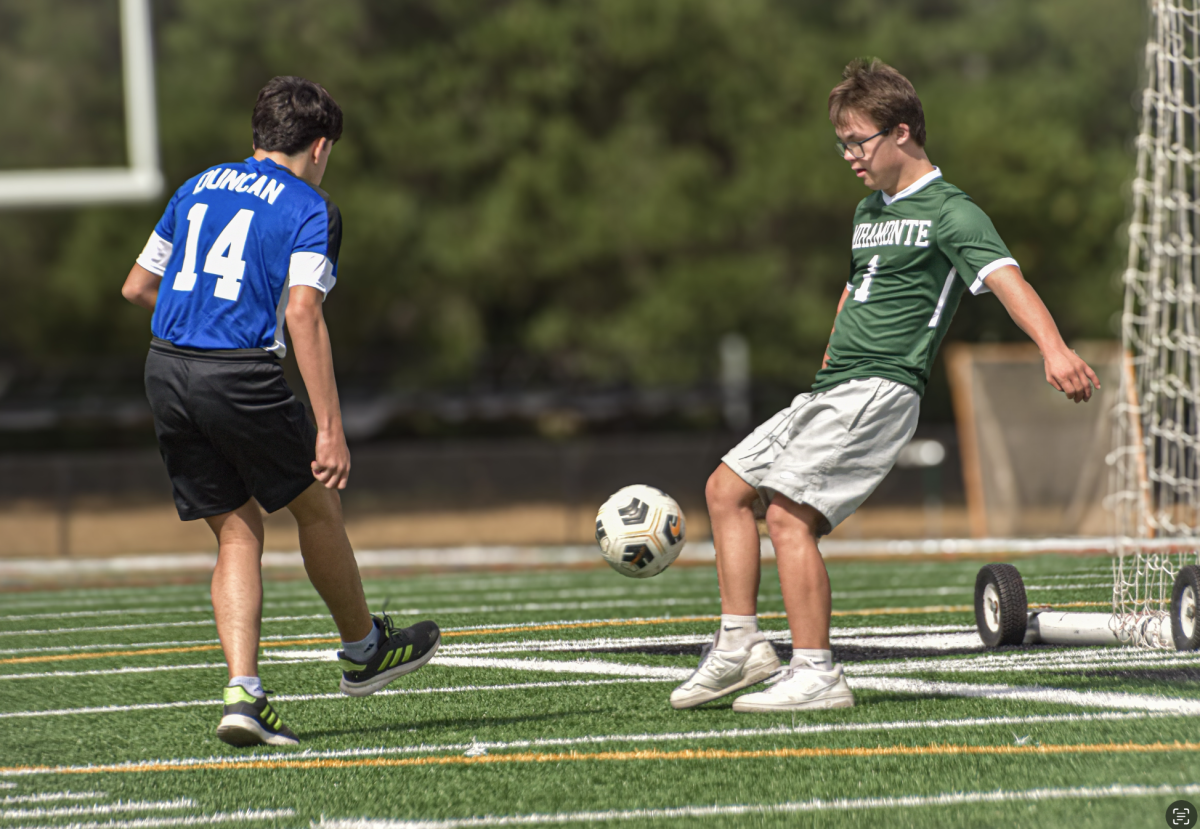Transgender athletes are a topic of debate around women’s sports in recent politics. In 2022, Lia Thomas, an openly transgender female swimmer, won a National Collegiate Athletic Association (NCAA) championship 500-yard freestyle event, sparking collegiate governing bodies to examine the subject of transgender participation in college sports. The governing body of the National Association of Intercollegiate Athletics (NAIA) has issued a policy change that will impact the participation of transgender athletes nationwide.
The NAIA previously allowed all athletes to participate in the men’s or women’s division of their choice during the official season and required athletes to compete in the division of their birth sex in the post-season. However, on April 8, in a unanimous decision (20-0) taking effect Aug. 1, the NAIA Council of Presidents changed the policy, requiring all participants in women’s competitions to be assigned female at birth. Additionally, while transgender athletes who have or have begun hormone therapy can still practice with their teams, they will now be excluded from intercollegiate competition.
Programs such as competitive cheerleading and competitive dance are exempt from this policy and will remain open to all students, regardless of gender or sex. The NAIA’s reasoning for this exception is that every other sport has a combination of stamina, speed, or strength which would provide participants assigned male at birth with a competitive edge. Research on any physical advantages between transgender and cisgender women is ongoing, and much of the science is unsettled as the subject is relatively new to the public scene. Some are concerned the NAIA’s decision will result in the NCAA pushing similar policies. The NCAA currently allows transgender athletes to compete if they follow their international sports government guidelines. According to the Washington Post, an estimated 40 transgender athletes are currently competing in the NCAA.
After the NAIA announcement, the NCAA released a statement ensuring the continuation of current athletic policies under Title IX, a 1972 federal law that guarantees fair and equal treatment of female and male students: “College sports are the premier stage for women’s sports in America, and the NCAA will continue to promote Title IX, make unprecedented investments in women’s sports and ensure fair competition for all student-athletes in all NCAA championships” (NCAA). While the statement did not directly acknowledge transgender athletic policies, the NCAA did clarify that it is not changing current rules around women’s sports.
At the high school level, the Acalanes Union High School District (AUHSD) transgender participation policy remains consistent with California Education Code 221.5: “A pupil shall be permitted to participate in sex-segregated school programs and activities, including athletic teams and competitions, and use facilities consistent with his or her gender identity, irrespective of the gender listed on the pupil’s records.” To summarize, students can participate in sports teams that align with their gender identity.
Additionally, the AUHSD superintendent Dr. John Nickerson clarified the board’s intentions after the recent NAIA policy.
“There has been no board discussion regarding changing this practice, and doing so would be violating California law and would not be consistent with the policies and practices of the California Interscholastic Federation and North Coast Section,” NIckerson said.
In addition to the school’s policy, the district examines the issue through an equity lens: “It is a primary goal of AUHSD to ensure that all students are included in school activities and feel comfortable participating. Effort is made by district and site administrators to work toward that end,” Diversity, Equity, Inclusion, and Belonging Coordinator Rania El-Sioufi said.
Though opportunities to participate in collegiate sports have narrowed for transgender athletes, AUHSD continues to provide an environment for all athletes to play.
“Participation in sports is a great opportunity for our students,” Nickerson said. “We support inclusion for all and participation in sports consistent with gender identity.”








